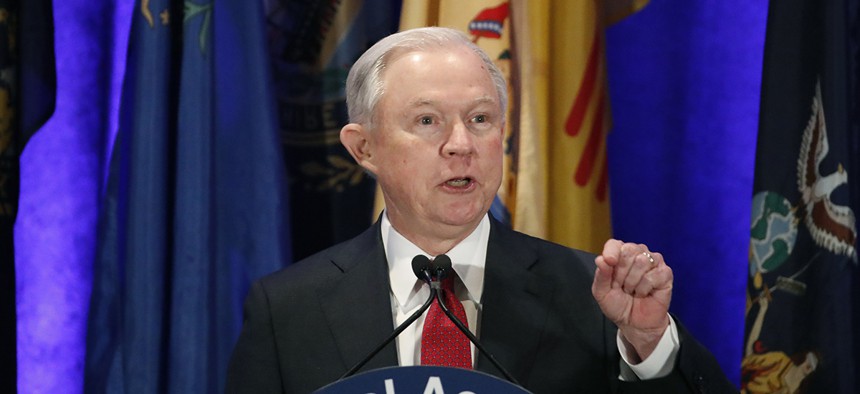One Russian Hacking Investigation Moves Forward, Another in Chaos

Attorney General Jeff Sessions Alex Brandon/AP File Photo
House intelligence leaders agreed on the scope of their investigation as calls mounted for Attorney General Sessions to recuse himself from executive branch investigations.
One investigation into Russian government efforts to upend the 2016 presidential election lurched forward late Wednesday while another devolved into chaos.
House Intelligence Committee leaders reached consensus on the parameters for their investigation, which will cover the election meddling itself, including breaches of Democratic campaign organizations, plus U.S. responses to those attacks, links between Russian intelligence and campaign officials, and classified leaks related to the intelligence community’s investigation of those attacks.
The official six-page scoping document remains classified, according to a joint statement from committee Chairman Devin Nunes, R-Calif., and ranking member Adam Schiff, D-Calif.
» Get the best federal technology news and ideas delivered right to your inbox. Sign up here.
The announcement follows weeks of bickering between the committee leaders about the precise scope of the investigation and whether Trump campaign officials who were allegedly in contact with Russian intelligence agents will be compelled to testify.
The scoping document also reiterates a demand that committee investigators be given broad access to intelligence community documents and allowed to store and review them on committee premises rather than at intelligence community buildings.
Meanwhile, congressional officials from both parties spent much of the day warring over Attorney General Jeff Sessions’ role in that investigation. Sessions recused himself from the investigations later in the day after acknowledging two campaign-era meetings with the Russian ambassador that he did not describe during his confirmation hearings.
Sessions said he responded truthfully to a question about Russian contacts and did not believe the question encompassed those meetings.
If the Trump administration does not appoint a special prosecutor, Schumer said in a press conference, Congress should reestablish post-Watergate legislation allowing an independent three-judge panel to appoint an independent counsel to review executive branch activities. Congress allowed that law to expire in 1999 following Kenneth Starr’s investigation into the Clinton administration that led to the president’s impeachment.
Updated: This story has been updated to reflect Attorney General Jeff Sessions' decision to recuse himself from investigations into Russian influence operations during the campaign.



